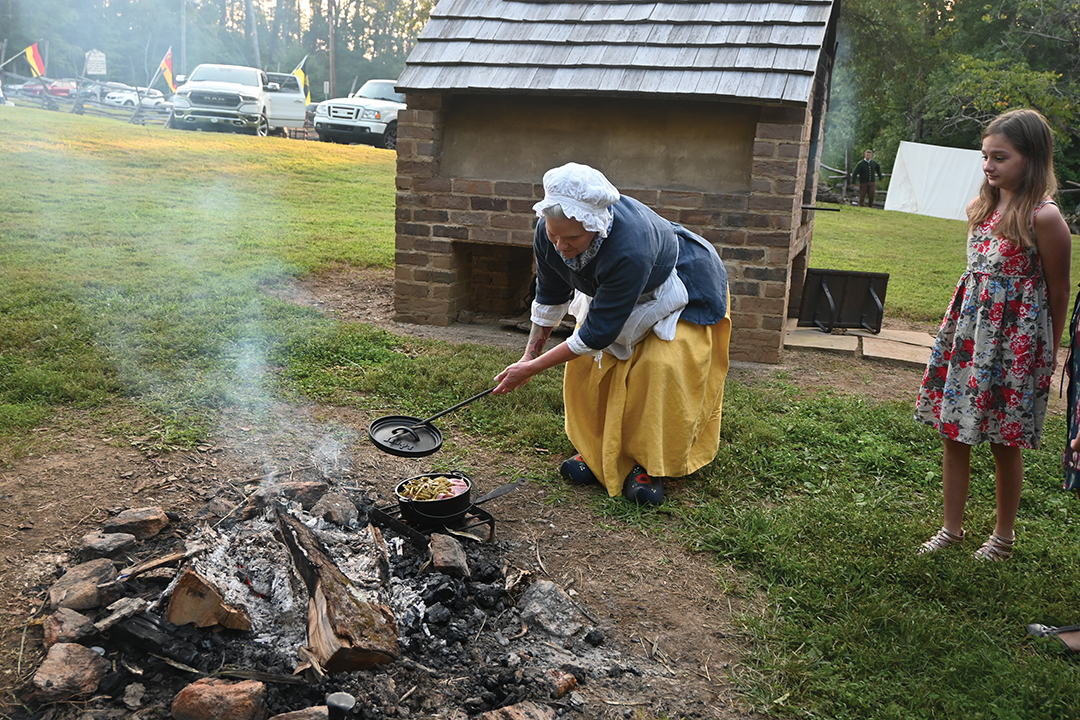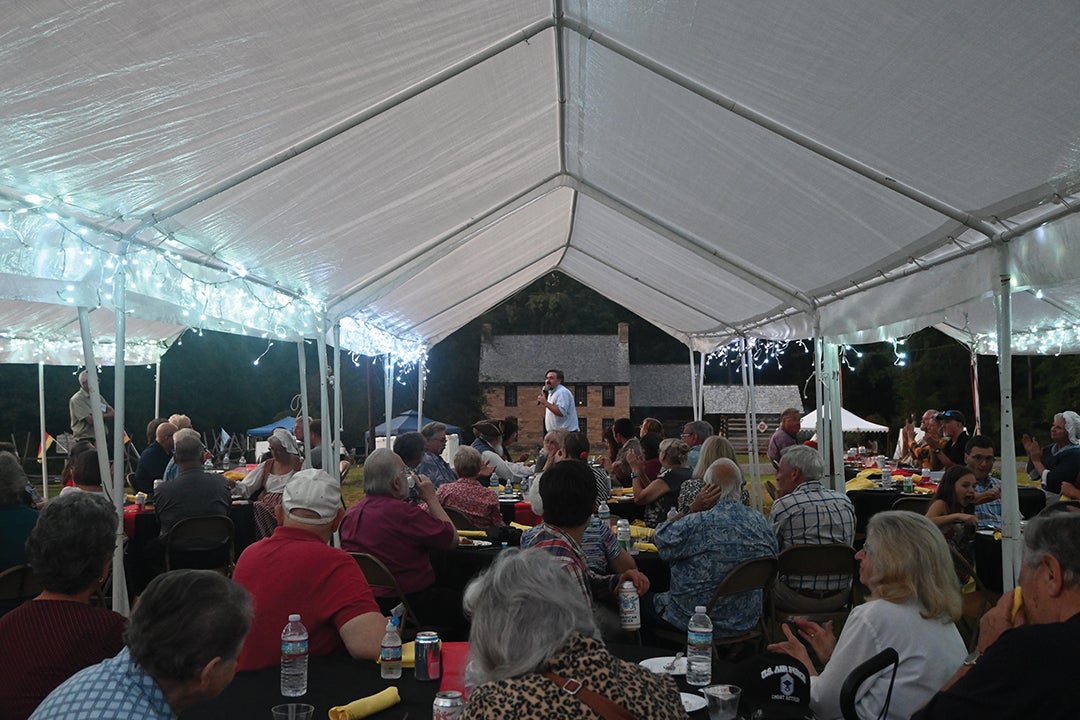Germanfest patron’s dinner remembers Germanic influences on Rowan County
Published 12:05 am Tuesday, September 20, 2022
GRANITE QUARRY — The weekend celebration of Rowan County’s German history kicked off with the patron’s dinner Friday night from 6 to 8 p.m. On the grounds, attendees were served with a buffet of Germanic cuisine prepared by Buttercup Café. Additionally. New Sarum served up their classic honey-persimmon beer, a tradition to the festival since 2016.
“We would go out and pick the persimmons ourselves just as they would in Germany,” said Kay Hurst, former director of Germanfest and a descendant of Old Stone House establisher Michael Braun. The staff at New Sarum used to brew the beer on the grounds in a large copper pot before taking it back to preserve it for shelf life. It was a similar copper pot to the one that can be found in the kitchen of the Old Stone House, which was buried under the floorboards of the kitchen until historians discovered it.
“You know about pulled pork here in North Carolina,” Hurst continued. “The Germans would pull apart pork shoulders and it was considered a delicacy. They also brought that to Rowan County.” In Germany, pulled pork is a dish called schäufele.
Another treasure trove preserved in the house is a candle wheeler, which is one of two that still exists in the state. Dipped candles would be hung off of circles hanging from a wooden device to set in place.
Volunteers of the house still participate in events as well as tours, including Robert Cochran who has volunteered for over 40 years and Theresa Pierce, who has been there for 22 after approaching the Rowan Museum about volunteer opportunities for her and her children. She now is involved with the Old Stone House with her grandchildren.
Aaron Kepley, former director at the Rowan Museum and descendant of Michael Braun, shared the importance of religion to the German people in the 1600s, leading them to migrate to Pennsylvania to travel the Yadkin River Trail for a place to establish the Lutheran religion when Catholicism was the primary faith. He said that children brought to the States were mainly taught to read in order to understand the Bible.
“They (the German settlers) left this house here as a legacy,” he said.
The house was threatened to be demolished by the state in the late 1950s for gravel roads, but the Braun-Fisher Family Foundation worked to save the house. Now, with logs from original cabins on the grounds and plenty of space, the Rowan Museum plans to rebuild those cabins in addition to having a cultural arts center for the Braun and Fisher families to research genealogy and to house indoor events.
The festival pays homage to the Germanic settlement in Rowan County, welcoming those from German descent or not, as many volunteers at the house recalled their families being from Scotland or England. Nevertheless, they held deep appreciation for their home in Rowan County that was established by Germans.



